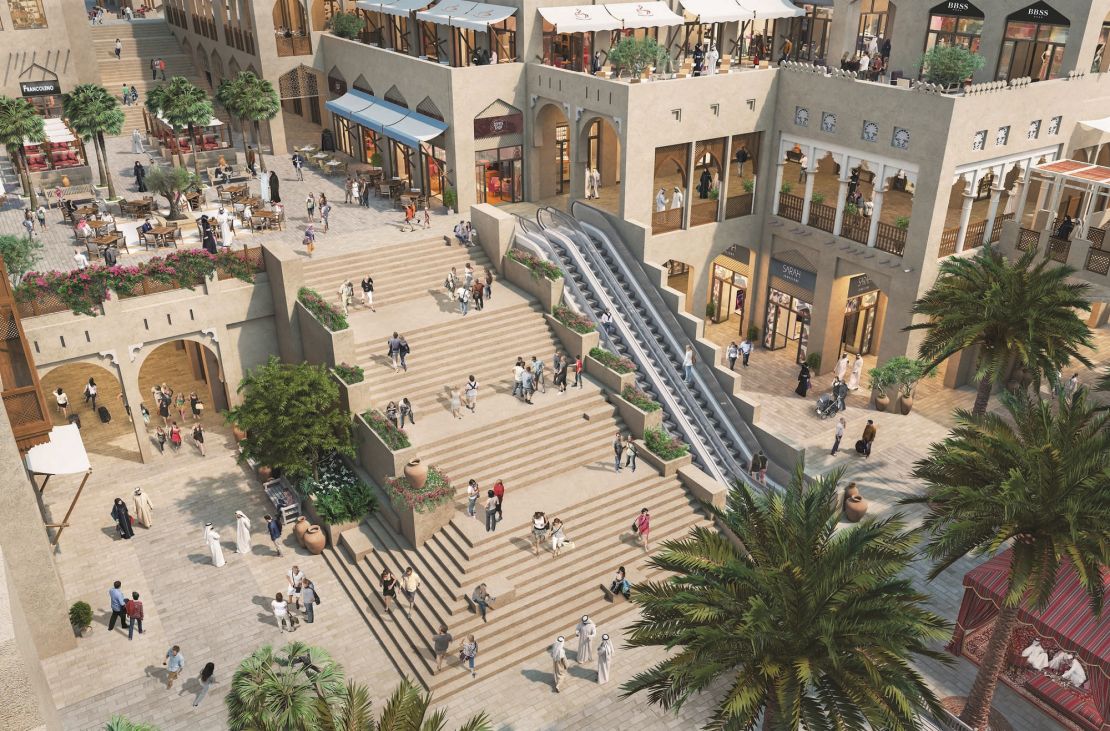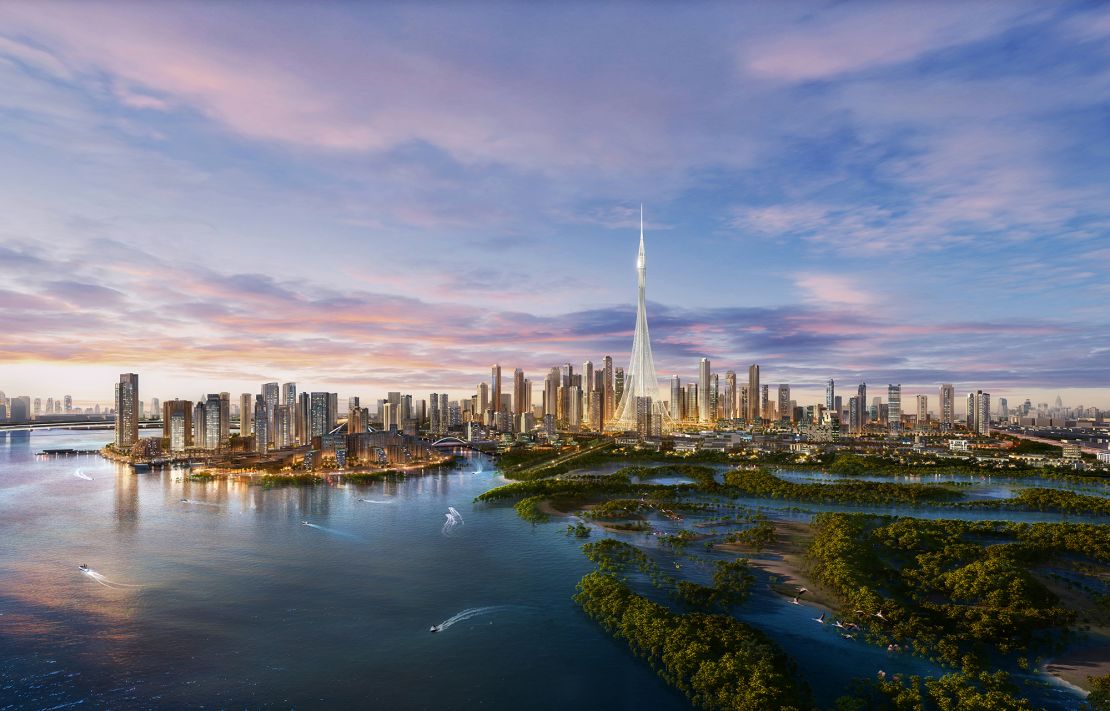Editor’s Note: CNN’s series often carries sponsorship originating from the countries and regions we profile. However, CNN retains full editorial control over all of its reports. Our sponsorship policy.
Plans for a sprawling “high-tech-meets-retail” metropolis have been unveiled in Dubai. The mega mall will be the largest leasable retail space in the world, spanning over 100 soccer fields in size.
Called Dubai Square, the $2 billion project in the Dubai Creek Harbour development will boast over 8 million square feet of retail space – more than twice the size of Dubai Mall – and will also be home to the Middle East’s largest Chinatown.
Designed as a destination outright, the ground floor will host celebrity performances, concerts and theater shows in a futuristic entertainment arena with 3D projection mapping, theatrical sound and lighting. Families will be catered for with a cinema, water park, sports arena and supermarket. But it is the tech angle that most intrigues.
“Dubai Square pushes the boundaries of modern retail and leisure by drawing on next-generation technology,” a spokesperson from Emaar Properties, who is developing the Dubai Creek Harbour in a joint venture with Dubai Holding, told CNN. “It is designed for the new era of customers, who are digital, connected and tech-savvy.”
Features include immersive experiences, such as VIP dressing rooms, smart fitting rooms with interactive mirrors and curated private fashion collections.

The “omnichannel” style of retail space – connecting physical stores with digital platforms – will be elevated by new technology, with purchases made via mobile and desktop, as well as the store counter. This shopping experience will be augmented by custom-designed mobile apps, barcode scanning applications and radio-frequency identification (technology used for inventories, but also cashier-less checkout).
With cutting-edge technology at the forefront of plans, are developers future-proofing the mall experience by targeting millennials?
Emaar maintains that there’s something at Dubai Square for everyone, but concedes “the new generation of tech-savvy youth are of course a top target customer.”
“The retail revolution in Dubai is moving in the right direction as they’re offering more than just bricks and mortar, it’s about the virtual world too,” says Nicolas Rubeiz, retail expert and partner at The Unit.
“The demographic structure is also very attractive to retailers targeting the Middle East as there’s a very high birth rate and a young population,” he adds. “Approximately half of the population of the Middle Eastern countries are under the age of 25. Many of these younger consumers are affluent professionals and this presents a huge up-and-coming market for the next two decades.”

Dubai’s aggressive retail expansion sits in contrast to many other commercial hubs around the world. But in 2017 sales slowed somewhat. Euromonitor International reported that the annual growth rate for store-based retail sales in Dubai dropped significantly last year (1.4%) compared to 2016 (6.5%), although the growth rate is predicted to reach 5.1% for store-based sales this year.
“The retail explosion shows no sign of waning in Dubai, but while some malls are doing extremely well … other retailers and malls are suffering to various extents,” adds Rubeiz. A CBRE report from earlier this year noted that while Dubai now had the highest penetration of international retailers of any city in the world, “higher (mall) vacancy rates will likely emerge over the long term.”
Experts suggest that despite the market remaining under pressure, the future is promising. This is largely as the retail market is strongly supported by the hospitality sector, which is predicted to see a spike in visitors around Dubai’s World Expo 2020.
Rubeiz remains upbeat about the retail forecast. “Personally I don’t believe there’s a danger of Dubai reaching saturation point,” he argues. “No one questions the sustainability of places like Singapore and Hong Kong, but as Dubai is a relatively new city, everyone questions it. There’s a huge misconception that it’s all artificial but it’s actually a very forward-thinking city.

















